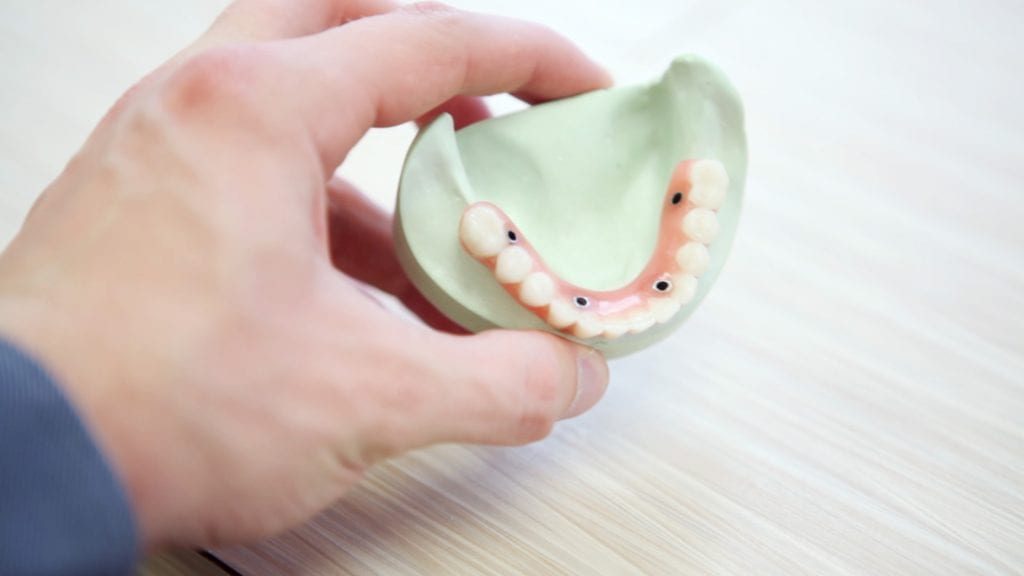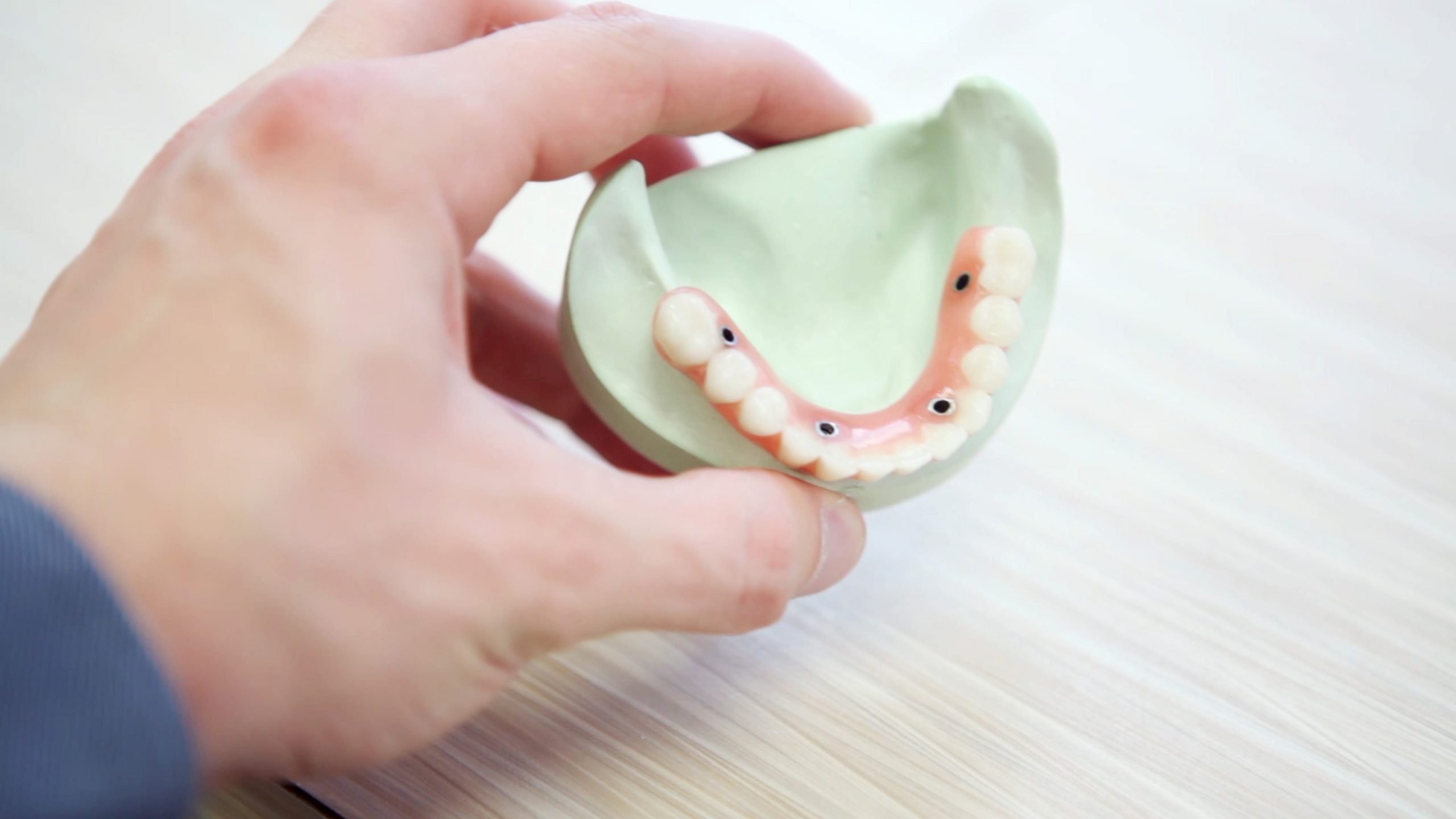
- What is a dental implant?
A dental implant is an artificial titanium root (an analogue of the tooth root) that we instal in the bone tissue. After installing the implant, a crown is fixed on it. Thus, an artificial tooth is identical to a natural one.
- What is an implant made of?
The implant is made of titanium. Leading dentists use implants produced by Nobel Biocare, a leading company in the development and manufacture of implants with Ti Unite surfaces. This cover is a high crystalline phosphate rich titanium oxide. Phosphate is a biomaterial that improves the implant survival rate.
- Why did implantation replace traditional prosthetics?
During the traditional prosthetics, if one or several teeth were lost, doctors grinded adjacent abutments and made dentures to restore the dentition. This led to atrophy of the bone tissue, and often, to the depulpation of grinded teeth. Dental implant help avoid bone atrophy and grinding of adjacent teeth.
- What types of implants are considered the best?
Nobel Biocare implant systems are recognised as the outstanding ones. The Nobel Biocare’s dental implant portfolio includes such key systems as Nobel Replace, Nobel Active, Nobel Speedy, Branemark, Nobel Parallel, Nobel Zygoma. The implants of these systems differ in thread and connections with the abutment as the dental prostheses are different in size.
- How much does dental implant cost?
The prices of dental implantation varies in different countries and clinics. The cost mainly depends on the implants type and plantation method. The most popular procedure performed is all-on-4 implantation. Thailand is considered one of the most affordable place to get this type of prostheses according to Bookimed reviews. The all-on-4 dental implants cost in Thailand starts from $7,780.
- What anesthesia is applied during the implantation?
The implant is placed under local anesthesia which desensitizes the mucous membrane in the area of prosthesis placement.
- Is it true that an implant slows done the bone atrophy?
Yes, it’s true. The complete atrophy of the bone tissue occurs in the first year and starts in three months after tooth loss. Therefore, you should to install the implant as soon as possible. After the implant placement, bone tissue does not atrophy.
- What is the implant lifespan?
The lifespan of the implant is very long. The first implants were installed more than 40 years ago, and they were given a lifetime warranty, which as a result was fully maintained. If the patient follows the basic rules of oral hygiene and the recommendations of a specialist, the implant will last you forever.
- What is the warranty for implant treatment?
The warranty for the dental implants longevity depends on the country and clinic’s internal policy. Some medical facilities give a 5-year guarantee and some of them a lifetime warranty. This information should be specified in your dentist.
- What is the dental implants survival rate?
The implant acceptance can take up to 4 months on the lower jaw, and up to 6 months on the upper. The structure of bone tissue in the lower jaw is denser, therefore, the acceptance process is faster. In the upper jaw, the structure of bone tissue is more loose, so the healing process takes more time.
- Are there any age limits for implantation?
Adults usually do not have any age limits. However, teeth implantation has age limits for adolescents the installation is possible to carry out for girls from 17, and for boys from 19 years. It is associated with the growth and development of the bone tissue.
- Are there any restrictions after the artificial teething?
After the implants installation, specialists recommend patients to avoid taking hot and meat food, as well as limit physical activity on the day of the surgery. Dentists also prescribe a course of antibacterial drugs each patient. As a rule, there are no significant restrictions. The patient can lead his/her common life and continue his usual activities. It all depends on the complexity of the procedure. A feeling of discomfort lasts 2-5 days.
